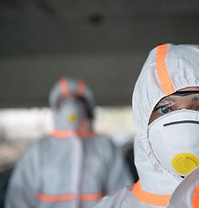
Peace of Time
Wellness

Follow Us:
Hours:
Monday-Friday: By Appointment Only
Saturday & Sunday: Closed
Phone: 412-742-7274
Email: Peaceoftimewellness@gmail.com
Natural Disasters, Social Distancing, & Mental Health
This page has been created in response to the Covid-19 pandemic. Understanding the impact of natural disasters such as a pandemic on our mental and physical health can assist in the adjustment to the many changes following the end of the event. Below is an outline of typical human reactions to crisis events, possible helpful strategies, and signs that it is time to seek out professionals.
*Please note that the information listed on this page in no way should be used in place of medical advice or used as clinical advice. Please seek out professional assistance if needed.*



Tiers of Impact
Crisis situations can have a significant impact on our well-being. Events like a pandemic can leave a lasting imprint on both our minds and bodies. Many of these impacts may not become present for several months following the end of the event. Individuals may experience different levels of impact during this pandemic:
Direct Impact via Contraction- a person who is directly impacted by the crisis by contracting coronavirus or a loved one contracting the virus
Direct Impact via Essential Worker- a person who is directly impacted by the crisis because they are deemed an essential worker and must continue going to work in the midst of the pandemic
Direct Impact via Shelter-in-Place/Other Impacts- a person who is directly impacted by the crisis because they are forced to shelter-in-place, must socially distance from friends and loved ones, loss of job/income, etc.
It should be noted that each tier of impact can cause a significant shift in an individual's physical and mental health.
-
Sleep and appetite changes
-
Increased hyper or violent play
-
Increased tantrums, yelling or crying
-
Missing people they are no longer able to see
-
Confusion about the crisis
-
Difficulty expressing what is bothering them
-
Unusual quietness or agitation
-
Confusion about illness and death
Common Responses in Children
Common Responses in Teens
-
Unusually aggressive or restless behavior
-
Confusion about the crisis
-
Closely watching parents' responses
-
Self-consciousness about fears and vulnerabilities
-
Concern and worry for others
-
Radical changes in attitude (anger, frustration, etc.)
Common Responses in Adults
-
Sleep and appetite changes
-
Increased anxiety or edginess
-
Feeling overwhelmed
-
Fear of the event happening again
-
Changes in beliefs and attitudes
-
Changes in relationships with others
Possible Self Care Strategies and Tips
for Parents
-
Reassuring safety to your child
-
Having a structured routine
-
Eating healthy and making meal times fun or relaxing
-
Helping your child stay in touch with relatives and friends
-
Providing calming activities or play materials to help them express themselves
-
Giving clear, age-appropriate explanations of what is happening and what to expect
-
Reminding children that anger and fear are common responses to a crisis
for Adults
-
Having a structured routine
-
Eating healthy
-
Seeking social support from friends and family
-
Increase exercise
-
Utilizing breathing and other relaxation exercises
-
Increase self dialogue to reframe your thinking
-
Positive activities and focusing on what you can do right now
When To Seek Help
A stress response is a normal reaction to significant events and does not mean you or your child is suffering from a mental illness. Each individual and community is impacted in some way from significant events and adjust in their own time. However, there can be some signs or symptoms that may indicate it is time to involve a medical or mental health professional. Some of these signs include:
-
Feeling numb/avoiding emotions or depressed mood that is lasting
-
Thoughts that create distress about the event that interrupt daily life
-
Social withdrawal even after it is safe to connect
-
Loss of interest in usually fun activities
-
Persistent worry and anxiety that seems unmanageable